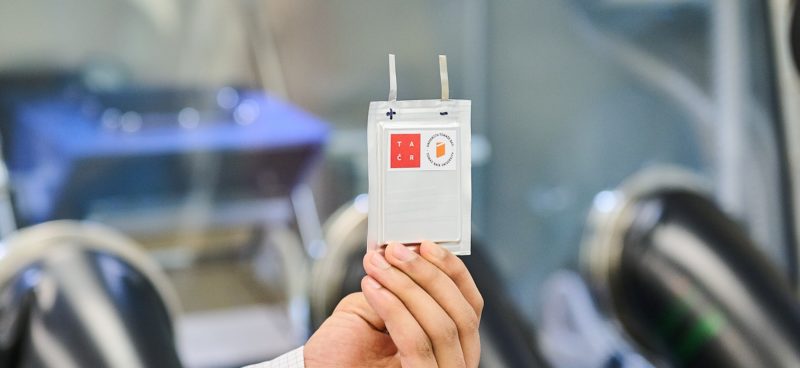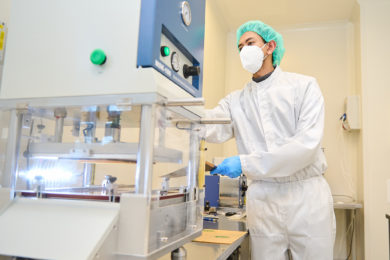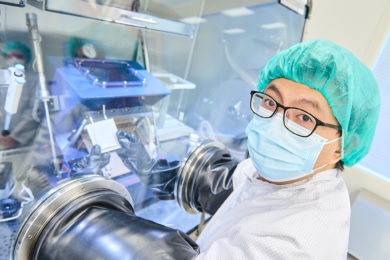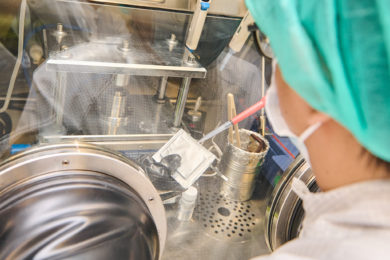
TBU Launches Prototype Production of Batteries
8. December 2021Tomas Bata University has launched a production line for prototype batteries. The line has been developed within the implementation of the Theta programme entitled Next Generation of All-Solid-State Li-ion Batteries, funded by the Technology Agency of the Czech Republic (TK03030157).
“Nowadays, hardly anyone can imagine life without electricity. To have it available at all times, we have to keep taking it from the grid. A more efficient option is to store and consume the electricity generated at the time or place when or where needed. We use energy storage equipment for this purpose, which in our case involves lithium-ion batteries, which are preferred in terms of the future of the Czech energy,” says Prof. Petr Sáha, Vice-Rector for Research, Development and Creative Activities at TBU.

One of the prerequisites for the line to work successfully are appropriate operating conditions. The University Institute houses certified clean rooms, which are essential for such operation.
For the preparation of the prototype batteries to start, raw materials for the cathode, anode and electrolyte must first be prepared. This is followed by the processing of the prepared materials on the line, which now consists of 8 pieces of equipment connected to each other.

The new line will be used for a number of projects. The Horizon 2020 StoRIES project, which addresses the infrastructural interconnection of European energy research institutions, is of particular importance. In total, 64 research infrastructures from 17 countries are involved in collaborating on research into future energy storage.

The cooperation topics, which are being prepared, are also worth mentioning. The Footwear Research Centre is the partner for conducting research into the use of waste chrome-tanned leather for the preparation of energy materials. Prototypes of new electrochemical sensor electrodes that can detect insulin and glucose quickly and accurately are being developed in collaboration with our Slovak colleagues. This can be good news for diabetic patients.